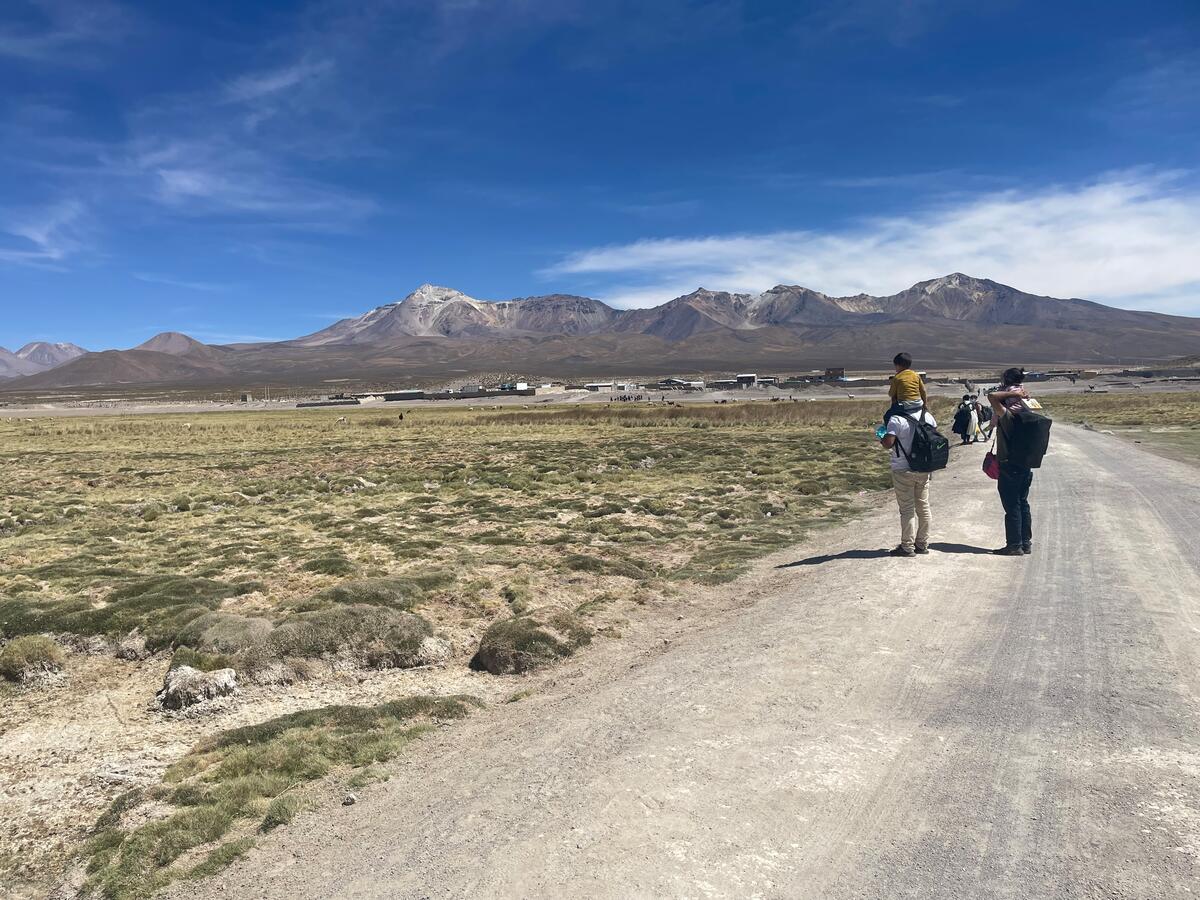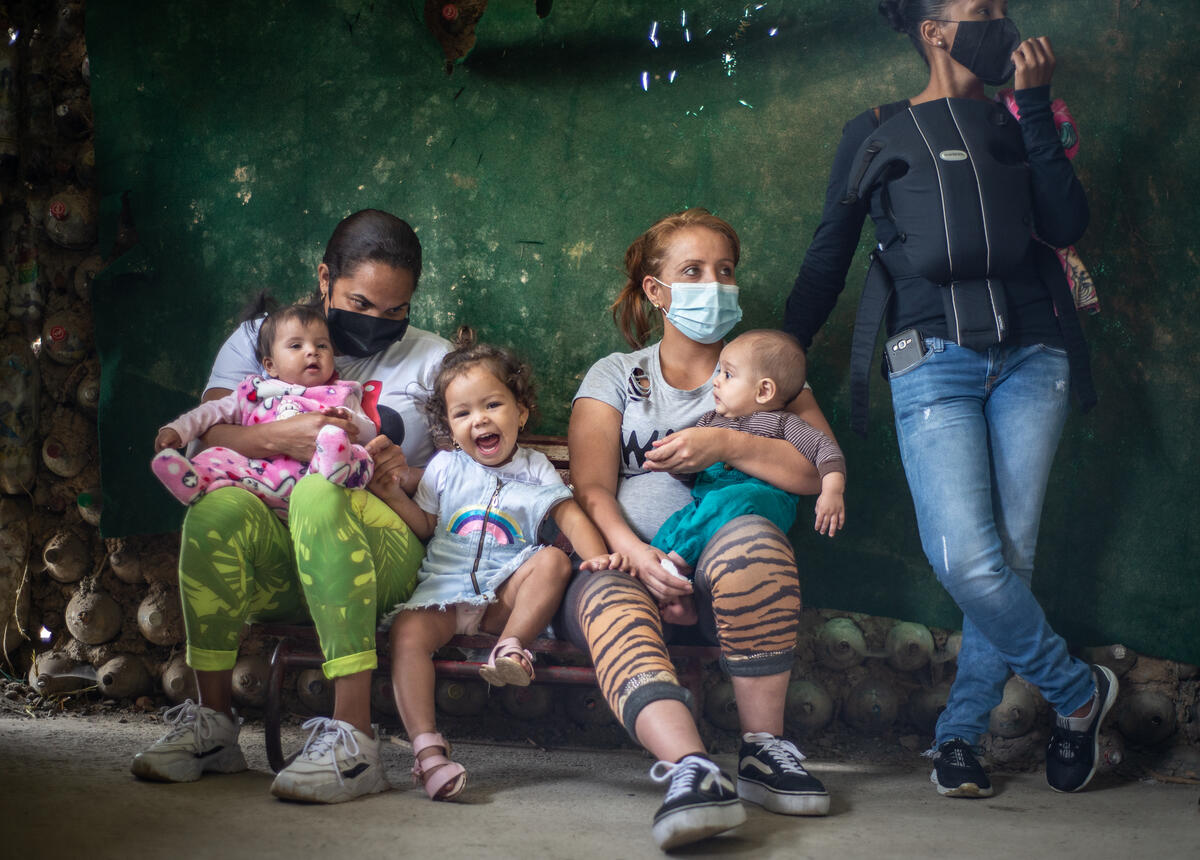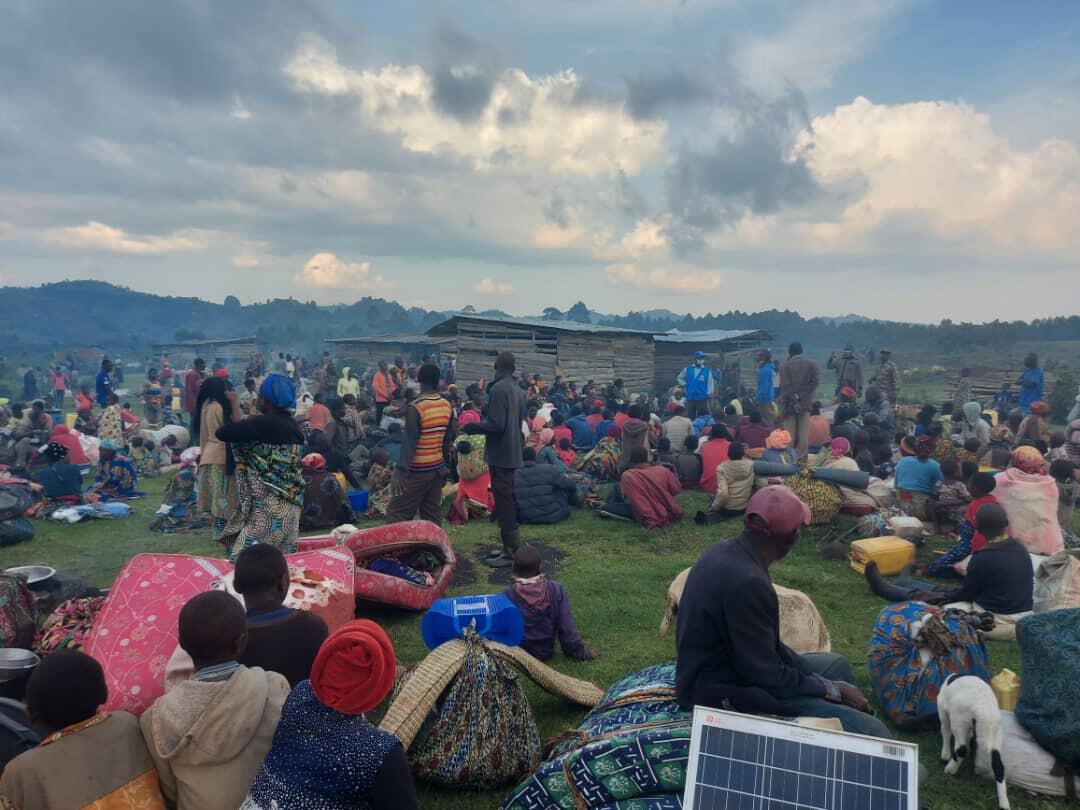UNHCR returns to Calais to provide migrants, refugees with information
UNHCR returns to Calais to provide migrants, refugees with information

CALAIS, France, June 17 (UNHCR) - The UN refugee agency has been sending staff from its Paris office on a weekly basis to Calais, where hundreds of migrants, refugees and asylum seekers, are living in squalid settlements hoping to cross to the United Kingdom.
UNHCR plans to open a full-time presence from the beginning of July in the northern French port, which it left in 2002 after the authorities closed Sangatte reception centre. UNHCR staff have been staying in Calais for three or four days a week since early June, working with aid partner France Terre d'Asile to inform the people about a wide range of issues.
They explain asylum in France and how to apply for it; organize information sessions with British aid agencies about conditions in the United Kingdom and asylum policies there; and give data on France, Britain and countries through which migrants transit to get here.
"We have come here to help the migrants and asylum seekers to make an informed decision," Francisco Galindo-Velez, UNHCR representative in France, said during a recent visit to Calais, which continues to attract irregular migrants and refugees hoping to reach the UK. He later said this was not just a French problem, but a European and international one.
"They no longer have any link to their country of origin, they need to know what is happening in order to decide their future," added Monique Delannoy, a worker with a local aid agency that helps the uninvited visitors.
Most pay smugglers large sums of money to bring them to Calais, which is separated from the UK by a narrow strip of sea. Ferries criss-cross the English Channel every day and some migrants try to hide on trucks to make the journey from France undetected.
Staff from UNHCR and France Terre d'Asile, together with interpreters, have been visiting the grim makeshift settlements in and around Calais where the migrants live. They mainly come from places like Afghanistan, Eritrea, Iran, Iraq and Somalia, but some are from as far away as Vietnam. Many have had to travel thousands of kilometres to arrive here, literally within sight of their goal.
Most are motivated by economic or family reasons, but a few have fled violence or persecution and their well-being is of direct concern to UNHCR. Many have no idea about the situation back home, or about what they can expect in the UK. "I left my country several months ago, I don't really know what the situation is anymore," Asad, a young Somali, told UNHCR during a food distribution organized by local aid agencies.
There are currently an estimated 800 migrants in the Calais area and about one in five are unaccompanied minors. A further 800 are in other ports on the northern coast. Relations between the foreigners and the people of Calais are tense. If they make it to the UK and are caught, they could face a return to the continent or to their country of origin, unless granted asylum.
By Marie-Ange Lescure in Calais, France







